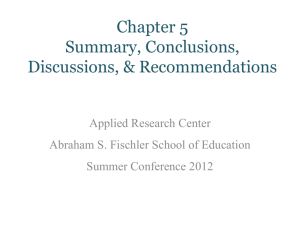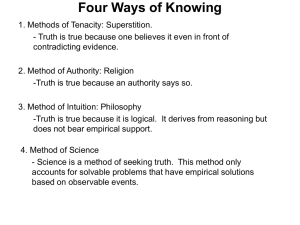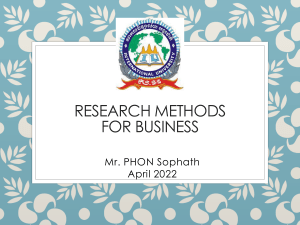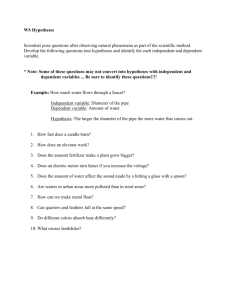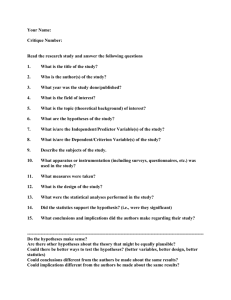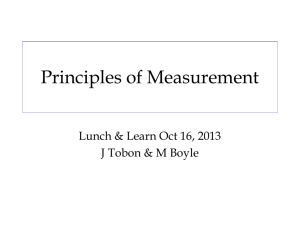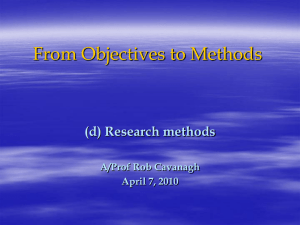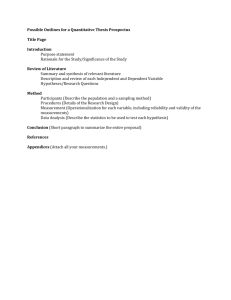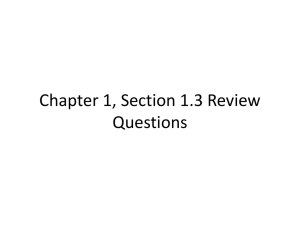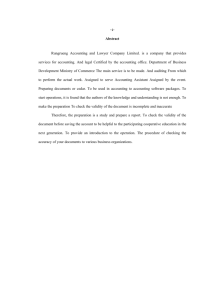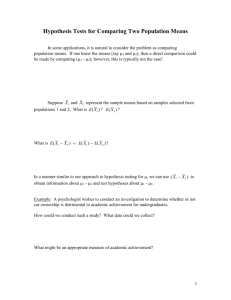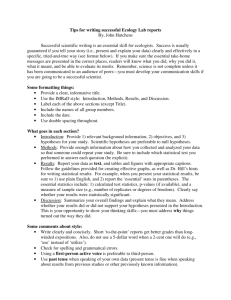Chapter 4_Answers
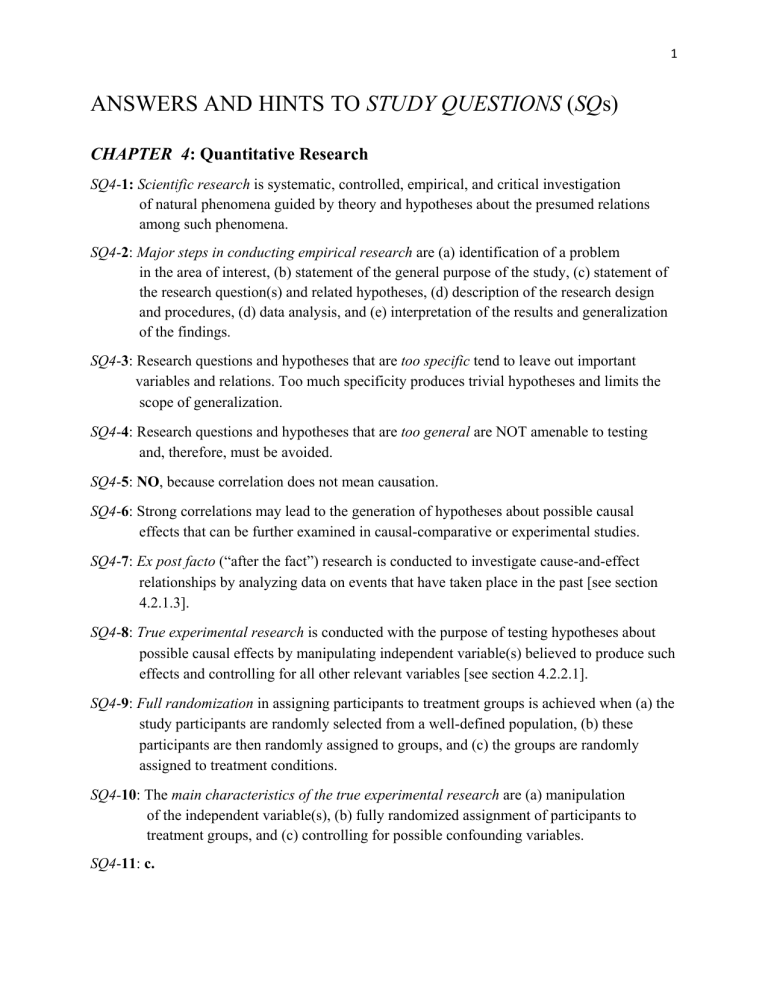
1
ANSWERS AND HINTS TO
STUDY QUESTIONS
(
SQ s)
CHAPTER 4: Quantitative Research
SQ4
-
1: Scientific research
is systematic, controlled, empirical, and critical investigation
of natural phenomena guided by theory and hypotheses about the presumed relations
among such phenomena.
SQ4
-
2
:
Major steps in conducting empirical research
are (a) identification of a problem
in the area of interest, (b) statement of the general purpose of the study, (c) statement of
the research question(s) and related hypotheses, (d) description of the research design
and procedures, (d) data analysis, and (e) interpretation of the results and generalization
of the findings.
SQ4
-
3
: Research questions and hypotheses that are too specific
tend to leave out important
variables and relations. Too much specificity produces trivial hypotheses and limits the
scope of generalization.
SQ4
-
4
: Research questions and hypotheses that are
too general are NOT amenable to testing
and, therefore, must be avoided.
SQ4
-
5
:
NO
, because correlation does not mean causation.
SQ4
-
6
: Strong correlations may lead to the generation of hypotheses about possible causal
effects that can be further examined in causal-comparative or experimental studies.
SQ4
-
7
:
Ex post facto
(“after the fact”) research is conducted to investigate cause-and-effect
relationships by analyzing data on events that have taken place in the past [see section
4.2.1.3].
SQ4
-
8
:
True experimental research is conducted with the purpose of testing hypotheses about
possible causal effects by manipulating independent variable(s) believed to produce such
effects and controlling for all other relevant variables [see section 4.2.2.1].
SQ4
-
9
:
Full randomization
in assigning participants to treatment groups is achieved when (a) the
study participants are randomly selected from a well-defined population, (b) these
participants are then randomly assigned to groups, and (c) the groups are randomly
assigned to treatment conditions.
SQ4-10
: The main characteristics of the true experimental research
are (a) manipulation
of the independent variable(s), (b) fully randomized assignment of participants to
treatment groups, and (c) controlling for possible confounding variables.
SQ4 11 : c.
2
SQ4 12 : The internal validity question is whether the study results are due only to the
manipulation of the independent variables, or whether there are also some confounding
effects produced by insufficient control in the experimental design.
SQ4
-
13
: The external validity
question is whether the results are generalizable to persons,
contexts, or measurement instruments beyond the specific settings and/or circumstances
of the experimental study
.
SQ4
-
14
: False.
SQ4 15 : Threats to internal validity ― history, maturation, pretesting, measuring instruments,
statistical regression (toward the mean), differential selection, experimental mortality,
and interaction among such factors (e.g., interaction between differential selection and
maturation).
SQ4
-
16
:
Threats to external validity
― interaction of selection biases with experimental
treatment, reactive effect of pretesting, and multiple-treatment interference.
SQ4
-
17
: c.
SQ4-18
: The external validity of this study is threatened by interaction of selection biases with
experimental treatment.
SQ4
-
19
: An internal validity threat is likely to occur due to maturation.
